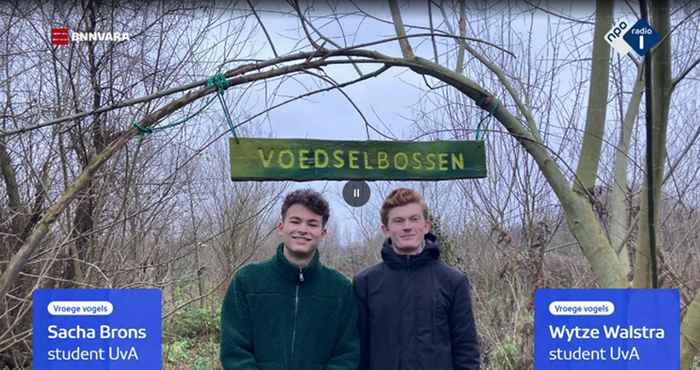Winners Create a Course at Radio 1
13 January 2023

Why these winners
In 'Food Forestry', which will be realised next year, students are taken through sustainability issues using food forests. With a food forest, an attempt is made to mimic a natural forest ecosystem. Peter-Paul Verbeek says it was not an easy decision, but in particular the experiental learning aspect of the course appealed to the jury. Verbeek also says that Sasha and Wytze's course is cleverly put together because: "Students who follow this course develop themselves not only in relation to nature and society but also as scientists who increasingly understand how things are put together". Sacha and Wytze are happy that a creative subject like this is getting the chance from the UvA to be implemented and both will become teaching assistants of the course in addition to course developers.
Purpose of course
In the interview, Wytze mentions the aim of the course: "to let students experience what it is like to learn about problems in society from a different angle than from a laptop screen". This refers to the experiential learning aspect of the course, in which, for example, students are also taught outside in a food forest before entering the lecture hall to delve into the material. By the end of the course, students have gained both practical and scientific insights that they can apply throughout their working lives.
Sacha goes on to say that the course also seeks to revolutionise the way nature and food production are viewed. For example, natural disasters such as a dry year or flooding are still disastrous for food production sometime later, affecting our supermarket shelves. If food production is based more on regenerative agriculture and food forests, natural disasters would affect our food security much less.
How to observe nature and to move along with it. That is what we want to impart to students.Sacha